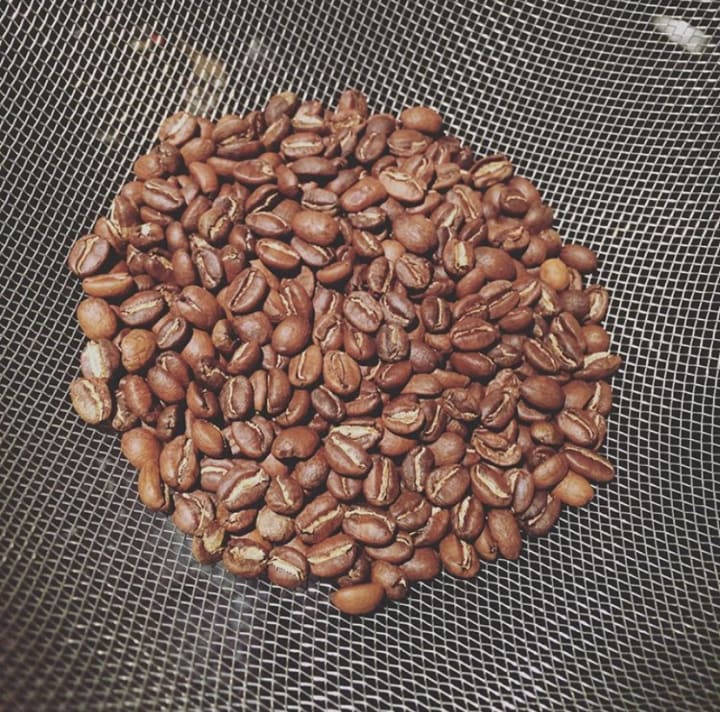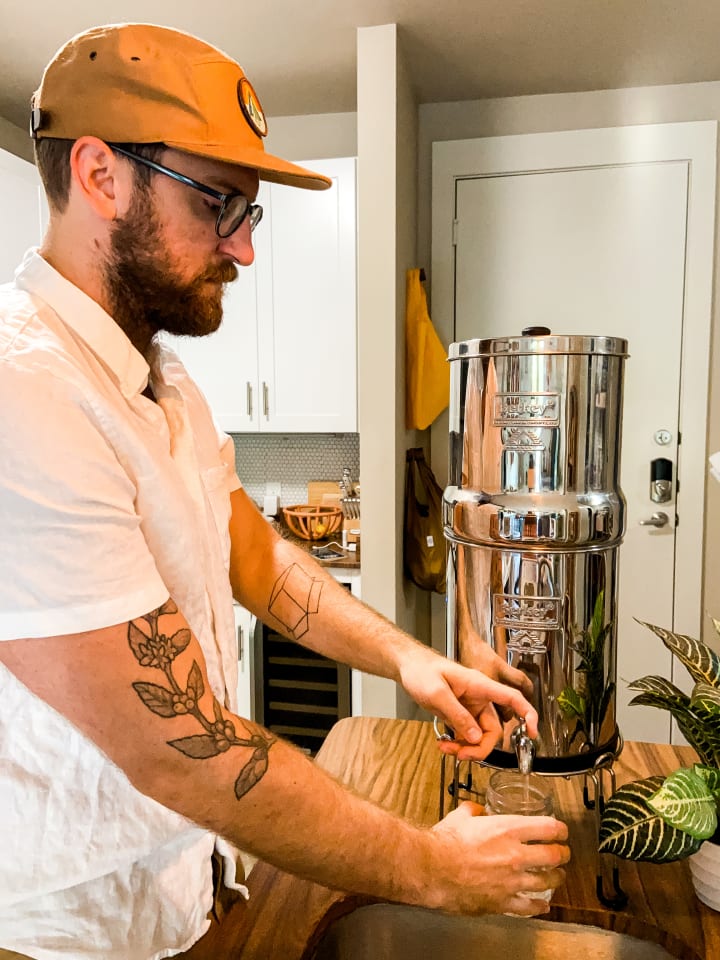4 Must-Haves for Sustainable Coffee Brewing
Home brewing the eco-friendly way

It’s become increasingly important to be intentional regarding our footprint on the planet.
Living a sustainable lifestyle requires an assessment of our daily habits, our areas of waste, and where positive changes can be made. Following these four steps will set you up for a wonderfully sustainable coffee brewing process.
1. Purchase Direct Trade Coffee
A key indicator to look for when purchasing coffee is a Direct Trade label. It’s important to note here that this is different from Fair Trade. Coffee can be labeled as Direct Trade when the roaster or coffee company purchases their green coffee directly from the farmers. The advantages are:
- Farmers are able to earn more money for producing high-quality coffee
- It incentivizes farmers to consistently produce great coffee crops, which is felt on the customer end as well (consuming a better-tasting coffee)
- Coffee roasters can build long-lasting relationships with farmers

The standard process for most large coffee companies is to purchase through a third party or a co-op, which limits (or completely inhibits) their contact with the actual farmers. Cheapest price for the largest quantity is typically the name of the game, so the incentive for farmers to produce high-quality coffee is minimal in these circumstances.
Fair Trade intends to provide more security, fair prices and treatment to coffee farms who struggle the most, but the system is riddled with holes and gray areas. This isn’t to say that it isn’t a well-intended system, it does provide a great service for multiple coffee farms. But, as consumers it’s our responsibility to check labels - look for the Direct Trade label to ensure you are supporting better treatment for coffee farmers.
Transparent Trade Coffee is a wonderful resource that allows consumers to get some insight on the coffee market and the economic state of coffee farmers. Coffee roasters can voluntarily provide data showing how much they paid farmers for their green coffee as well as how much they charge for the finished product.
Here are a few of my personal favorite coffee roasters that provide direct trade coffee:
- Cultivar Coffee, Texas
- Onyx Coffee, Arkansas
- Cat & Cloud, California
2. Use Reusable Filters

I fought this one HARD for a long time. I was convinced that overall quality would suffer if I stopped using paper filters. Turns out, I was dead wrong. After working in the coffee industry for quite awhile, I obtained a decent palette for tasting small differences in coffee origins, brew styles, as well as filter types. Truly, the difference in taste is virtually indistinguishable.
Want more upside? According to CoffeeSock, “750 million paper filters are being made and discarded, each and every day. 275 billion per year. It takes the equivalent of 1.5 million trees to make that many filters annually.” Depending on how much coffee you drink, each cloth filter will replace anywhere between 4 - 12 boxes of paper filters each year.
Once I started using cloth filters I decided I would never go back. Currently I use CoffeeSock filters, but EarthHero also sells both cone-shaped and flat-bottom filters to accommodate many brewing systems. It’s a win-win, really. Save money by not having to purchase filters every few weeks, and stop your paper waste in its tracks.
3. Get a Water Filtration System

Clean drinking water is obviously vital in everyone’s life, and I discuss the adverse effects of unfiltered drinking water in 3 Simple Things That Are Harming Your Health. Filtered water is absolutely fundamental in the brewing process. Most unfiltered water contains heavy metals, fluoride, and chlorine amongst many other atmospheric pollutants. The adverse affects these have on your health are bad enough, but strictly from a coffee brewing perspective, they alter the taste in negative ways. Coffee brewing entails water extracting flavor from roasted coffee beans that have been ground up. Of course minerals and pollutants will affect the taste!
The best way to attain water free of harmful substances is through a quality home water filtering system. Berkey has numerous models to fit every need and family size, and has amazing filtration technology. It’s a key component of sustainable home brewing, preventing the need to purchase filtered bottled water. Cut down on your plastic waste, save money, and brew cleaner, superior-tasting coffee!
4. Compost Your Spent Grounds

Instead of dumping your old grounds in the trash, put them to use! Along with coffee grounds, things like egg shells, fruit/vegetable peels and skins, and many other types of food waste can be quite useful. All of this decomposing organic material adds an immense level of nutrients to the soil. Your tomatoes and herb garden will thank you!
EarthHero also sells a great compost bin you can keep on the kitchen counter. It comes with a charcoal filter so the smell of organic material won’t escape. Don’t have a garden? Maybe you live in an apartment and think you have no need for a compost bin? Go sniff your trash can the day after making a home cooked meal and get back to me.
Assess your habits. Cut out waste where you can. Create a more enjoyable, sustainable coffee brewing experience. Get after it!
About the Creator
Dan Pittman
I write to encourage perspective. I write to challenge readers to really peel back the layers of their mind and get their hands dirty. Our brains are fascinating and even moreso when we dive deep into their depths.







Comments
There are no comments for this story
Be the first to respond and start the conversation.